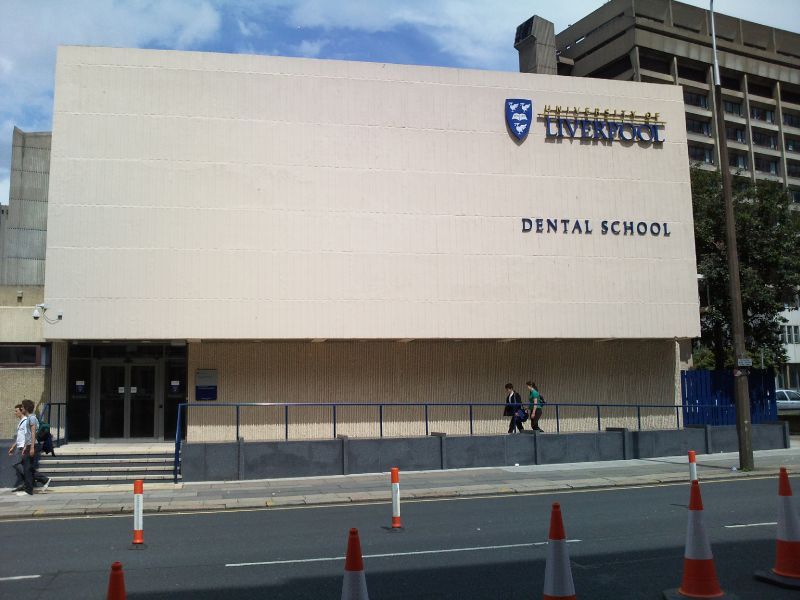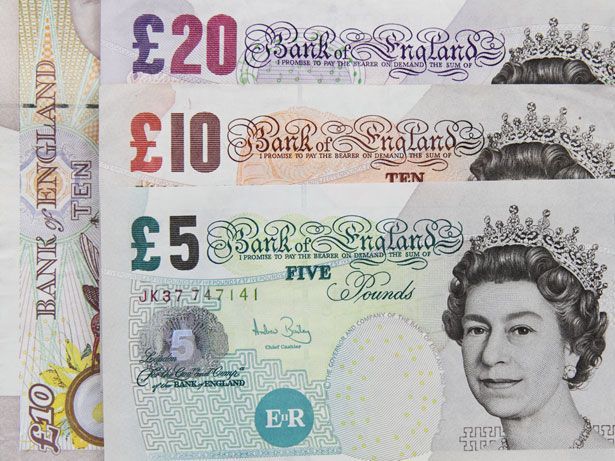Whether it is the squeal of the dentist’s drill or the expensive bill for treatment, a visit to the dentist often fills patients with dread. We all have to put up with that terrible grating noise, but not the astronomical charges for procedures like dental implants and All-on-4’s. With plenty of ways to save money on dental treatment in the UK, you can find a way to get the bright white smile you want without emptying your bank account.
The All-on-4® Treatment Concept and Dental Implants—What You Need to Know
Dental implants replace missing or damaged teeth to help maintain your oral health and restore your smile, and this type of dental treatment is one of the most expensive in the UK. The implant procedure involves an implant specialist (implantologist) inserting a metal post into your jawbone, adding an internal screw called an abutment to the post, and fixing a false tooth (crown) to the abutment.
The All-on-4® treatment concept by Nobel Biocare and available only through authorized clinics, is used to restore a full arch of teeth, involving the placement of four implants into your jawbone. The rear two implants are angled at around 45 degrees to avoid compromising the sinus cavity or nerve canal. A full set of “permanent dentures” can then be affixed to the top or bottom of your jaw using these four implants. Pioneered by Dr. Paulo Malo in 1998, this procedure is often quicker and cheaper than having multiple teeth replaced with individual dental implants.
How Long is Needed for Treatment and Recovery?
Dental implants require one or two visits to a dentist, depending on the type of implant. For the type that requires 2 visits, the first is to have the implants secured into your jawbone, and the second is to have the permanent crowns fixed into place. Around four to six months are needed between appointments to give the implants time to fuse properly with your jawbone. During that time, it is wise to avoid hard foods as your mouth needs time to adapt to your implants.
After your dental implant procedure is complete you can expect some swelling in your mouth, along with some soreness, which should recede after a few days. Caring for your dental implants should be done in the same way as normal healthy teeth, with regular brushing and flossing. Regular visits to your dentist are also recommended to prevent any problems with your dental implants developing.
How Much Do These Procedures Cost?
Cost of the All-on-4® treatment concept or dental implant in the UK does vary, as prices are set by the dental practice when you are treated privately. When using an NHS dentist, the price for dental implants is the same at all dental clinics across the country, however you can only get dental implants on the NHS when they are deemed medically necessary, not just for cosmetic purposes.
Currently, the average price of the All-on-4® treatment concept in the UK is £19,382, and a single dental implant costs £2,928. Luckily, finding a way around these eye-wateringly expensive figures is possible if you simply cannot afford to pay that kind of money:
1. Get Covered with Dental Insurance

Equipping yourself with dental insurance is one way to keep your dental treatment costs down. Choose from two types of policies in the UK, one that covers only NHS treatment, or one that covers a variety of private treatment too. All dental insurance policies vary, so it is important to learn about the terms of your coverage and any conditions that apply.
Pre-existing conditions are rarely covered, plus many cheaper dental insurance policies require you to pay an excess. In the UK, dental insurance policies start from £6 a month, covering just some NHS procedures, while more comprehensive policies covering private treatments are priced at around £20 a month. Read about UK dental insurance in more detail here.
2. Visit an NHS Dentist

If you can find an NHS dentist with the capacity to take on a new patient, then you will only have to pay a contribution towards the cost of your dental care. Three bands of pricing exist, each covering different treatments.
- Band 1 covers an examination, x-rays, a scale and polish, plus emergency dental treatment, at a cost of £21.60.
- Band 2 covers everything in Band 1, along with fillings, root canal treatment, and tooth extractions, for which you will pay £59.10.
- Band 3 covers everything in both Band 1 and 2, while adding crowns, dentures, and bridges to the list. This course of treatment is priced at £256.50.
When you visit an NHS dentist, you pay a fixed price for your entire course of treatment, no matter how many appointments are needed. Dental implants fall within Band 3, but it is up to your dentist to decide whether this type of procedure is necessary for your oral health. More information about NHS dental treatment is available here.
3. Travel Abroad for Dental Treatment

The UK is one of the most expensive countries in the world for dental implants, so visiting a dentist beyond the border is another way to save money. Cheap dental implants are available close to home in countries like Spain and Hungary, but even bigger savings can be made by traveling further afield. Cost for the All-on-4® treatment concept at a high-quality dental clinic in Bali is just £3,230, and in Thailand a single dental implant costs on average £1,447.
4. Spread the Cost with Dental Financing

Most UK dentists offer dental financing to help you spread the cost of your treatment. Think of it as a personal loan to cover your bill, which is paid back in monthly instalments over an agreed course of time. Some dental practices offer 0% financing if you can pay back the full amount within 12 months.
Financing is a great option if spreading out the cost makes it easier and you have a reliable income to pay each instalment. The big downside is that you could have to pay interest, making the overall cost even more expensive. If you agree to pay back more than you can afford you could end up with late-payment charges.
5. Small Regular Payments with Dental Plans

A dental plan involves paying a regular amount every month to cover your dental treatment costs, instead of paying for every individual visit to the dentist. Two types of plans exist: a maintenance plan and a capitation plan, each offering a different level of care.
A maintenance plan is designed to cover accidents, emergencies, and general oral health care, and usually provides you with two dental examinations and hygienist visits each year. Dental clinics can choose what you pay, so work out how much these appointments and treatments would cost on a pay-as-you-go basis to see if the plan offered is good value or not.
Alternatively, a capitation plan is designed to offer unlimited treatment that covers a range of procedures, from root canal fillings to dental implants. The state of your oral health and your previous dental work will be examined ahead of you joining this type of plan, and the cost will reflect what type of treatment your dentist expects you to need in the future. See more on dental plans here.
6. Volunteer at a Dental School

For a chance to pay absolutely nothing for dental treatment, put yourself forward as a volunteer at a dental school. With 18 dental schools recognised by the General Dental Council across England, Wales, Scotland, and Northern Ireland, chances are there will be one close to you.
Certain eligibility requirements do apply, but procedures like crowns, dental implants, and veneers are available if they are necessary for students to complete their undergraduate programme. Find a list of all UK dental schools here , and more information about applying to become a patient at Leeds School of Dentistry here.
While the quality of work is generally high, one downside is the amount of paperwork required to gain access to dental school treatment, as well as scheduling issues, particularly for implants. If you can deal with some red tape and be a bit flexible with your time, dental schools might be a great option.
7. Negotiate with Your Dentist

It might seem strange to suggest that haggling with your dentist will save you money on your bill, but private dentists in the UK set their own prices, so there is usually room to manoeuvre. A good place to start is asking a few dentists to give you a quote for their most affordable All-on-4, find out which is cheapest, and then see who can go a little lower to secure the job.
8. Pay Cash Upfront for a Discount

Offering your dentist a cash payment on the day of treatment is another way to bargain for a little extra off your bill. Credit card payments incur fees that cut into a dentist’s profit, so a cash payment will save them money. It is only right they share some of the savings with you, so ask away and see what they say!
9. Fundraise with GoFundMe

If you have been involved in an accident or have an illness that has damaged your teeth, you could raise the money for dental treatment with GoFundMe. This popular crowd-funding platform sees over 10,000 new fundraising campaigns started every day, and it is completely free to use.
10. Grab a Coupon at Groupon

Find coupons for money off dental treatment at Groupon, where dental clinics up and down the country advertise to try and get you through their door over the competition. Some offer coupons for low-cost dental implants, with regular prices slashed by over 50% and new offers posted all the time. Be sure to thoroughly check your dentist’s credentials for quality and service.
11. Keep an Eye on Local Newspaper Deals

Private dental clinics are businesses, so they must advertise just like any other money-making enterprise. Check your local newspaper for adverts which display discounts or cut-out coupons. You can often get a free consultation at least, and then apply items 7 and 8 to get a more off your treatment!
Hopefully these tips will help to make your next visit to the dentist more affordable, and if you have another way to save money on UK dental treatment we would love to know about it!


